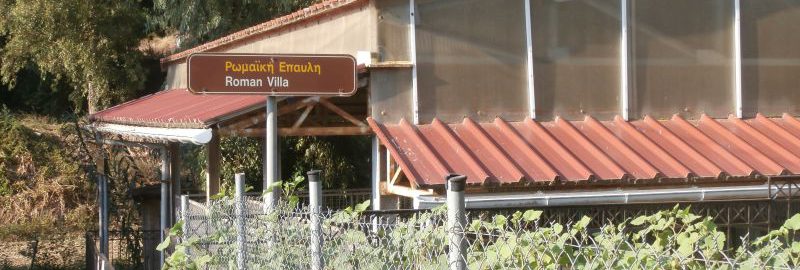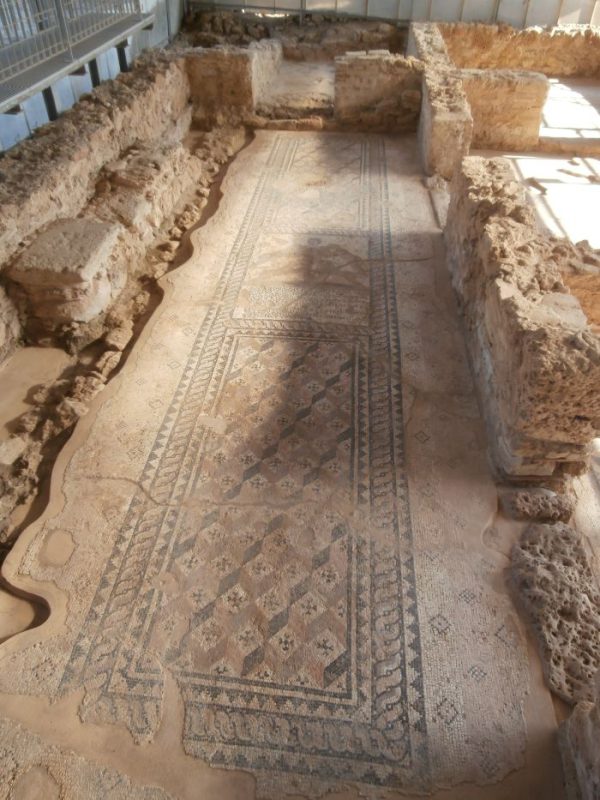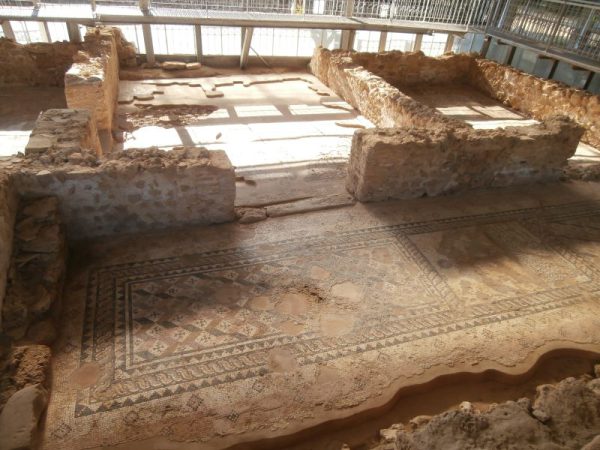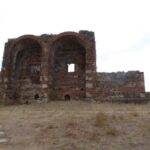Roman villa of Skala (island of Kefalonia, Greece) was discovered in 1957. Situated on the southern coast, it certainly offered a beautiful view. Six rooms have survived to our times: a hall, three rooms, a smaller room and an open courtyard. The villa certainly also had its own bathroom with a heating system – hypocaustum.
In the hall, you can see a mosaic floor showing Phthonus – the Greek god of jealousy and anger. God is shown as a young man who is attacked by wild animals (lion, tiger, panther and leopard). The scene was surrounded by geometric motifs.
In one of the large rooms there is a mosaic showing the altar, fruit and boys who sacrifice a bull and a ram. In other rooms, in turn, we can see mosaics presenting geometrical figures.
The object – in the opinion of scientists – is dated to the 2nd century CE, and destruction took place in the 4th century CE due to fire. Part of the remains of the villa was an early Christian church, which was also destroyed in a fire in about the 10th century.









